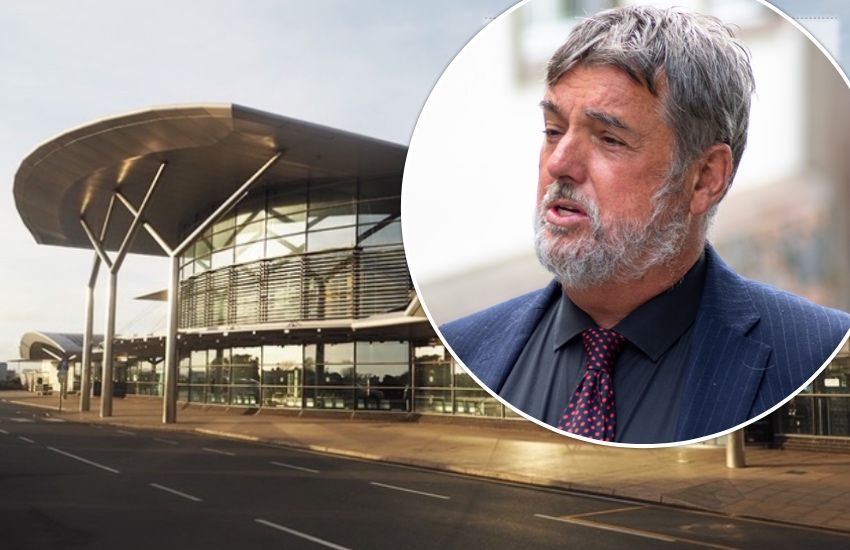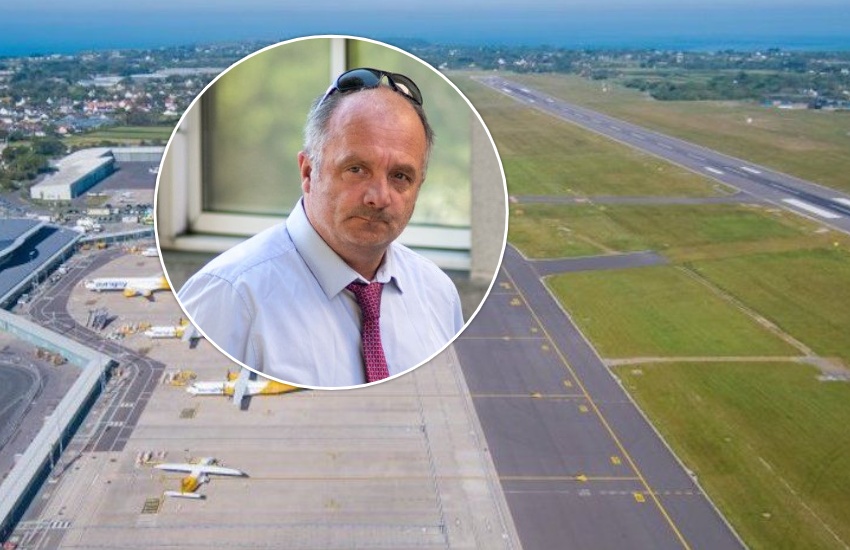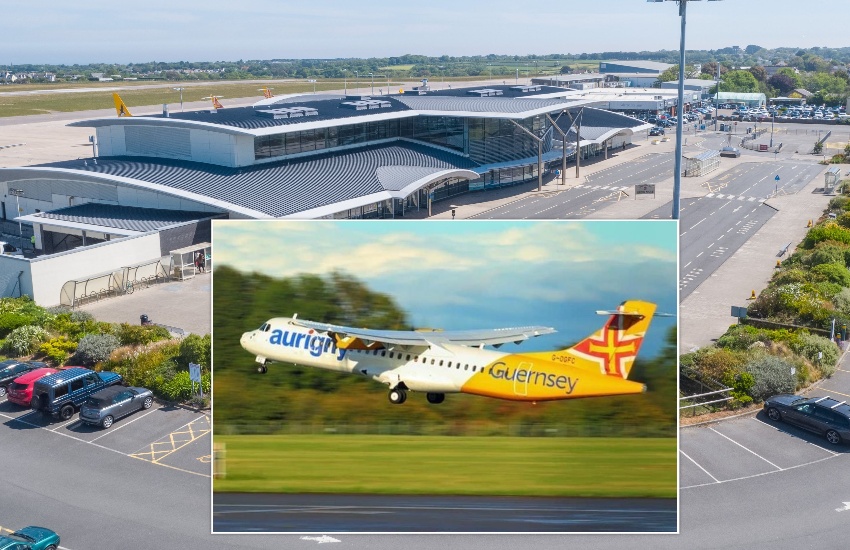


Economic Development’s wish to shift responsibility for whether Guernsey’s runway should be extended has come as “a bit of a surprise” to the President of the States Trading Supervisory Board, who also sees little commercial merit in lengthening the tarmac.
ED announced yesterday that any decision on the runway should be “a commercial decision taken by the States’ Trading Supervisory Board”, with deputies to be asked to approve such a move in September.
The STSB would be asked to consider the commercial feasibility of an extension when it next seeks to resurface the runway, which Deputy Roffey said is likely to be around 2030.
But STSB President Peter Roffey told Express that while the Board would be “happy to take on the task”, it is “highly likely” a runway extension will never happen in that case.
“The only conceivable justification for an extension would be an alleged broader economic benefit to Guernsey but the proposition in the policy letter effectively removes that as a criterion,” he said.
“I wasn't personally convinced that such a broader economic benefit existed anyway because, while there may have been benefits for tourism from attracting a [low-cost carrier], other sectors would have been disadvantaged. Now that broader consideration has been removed, I read a vote for the policy letter to be a vote against a runway extension per-se.”
He said the anticipated costs of £79m for an extension, £23m for an expansion of the terminal building, and the loss of income to the ports by discounting fees to cheap commercial airlines would translate to “spend a lot to get less income”.
Analysis by York Aviation, commissioned by the STSB and published last year, suggests that the Airport’s ongoing financial position would therefore worsen substantially. Deputy Roffey added that these conclusions would be “the most relevant” in any commercial decision.

Pictured: Deputy Neil Inder's committee will not recommend an extension to the States.
Deputy Neil Inder, President of Economic Development, said on social media yesterday that “this is neither the day nor the hour to spend significant amounts of public money on a project with some benefits but not without risk to our islands’ overall connectivity”.
He echoed Deputy Roffey’s view that the capital cost of extension would have to also weigh up “a likely subsidy to attract any low-cost carrier and further losses of revenue at Guernsey Airport”.
Four out of five committee members had “extensive” concerns with the project including the effect on ferry passenger numbers through a “significant shift” in the numbers that would be travelling by aircraft.
“The bit I was concerned with the most, is that Guernsey, as a market, is largely sub-optimal. We appear not to have the size of market to attract a true low cost carrier competition."
The risks to wider connectivity and the guaranteed service provided by Aurigny would be too great, Deputy Inder added.
“An extended runway is unlikely to attract new carriers without providing access to London Gatwick as an anchor route. The introduction of competition on the Gatwick route would cause Aurigny to refocus its business away from Gatwick and onto UK regional routes, thus reducing the airline’s profitability and economic contribution to Guernsey."
Aurigny would be unable to quickly pick up the pieces should an airline suddenly pull out of lifeline routes, he said.
“This island has a number of looming vulnerabilities, and I simply cannot put my name to a project that I consider risky. I wouldn't do it with my money, I won't do it with yours,” he concluded.

Pictured: An extension would jeopardise the position of Aurigny and the ports, both of which are overseen by the STSB.
The studies expanded upon previous consultant investigations. One of which, conducted by Frontier Economics, found that wide economic benefits could be realised by extending the runway.
These were initiated after several deputies petitioned the States to investigate extending Guernsey’s runway to at around 1,700m in 2019, with those investigations completed in March 2020.
Following the November 2020 election, the newly formed Economic Development committed to carry out further investigations into the project to consider the impact of covid on air travel generally and the reports’ conclusions.
Its conclusions remained the same after a period of reinvestigation in 2021 but it was added that a higher number of air passengers per year would be required to break even on an extension.
Runway extension to be put on the back burner under latest proposal
Aviation specialists reach damning conclusions on runway extension
Comments
Comments on this story express the views of the commentator only, not Bailiwick Publishing. We are unable to guarantee the accuracy of any of those comments.